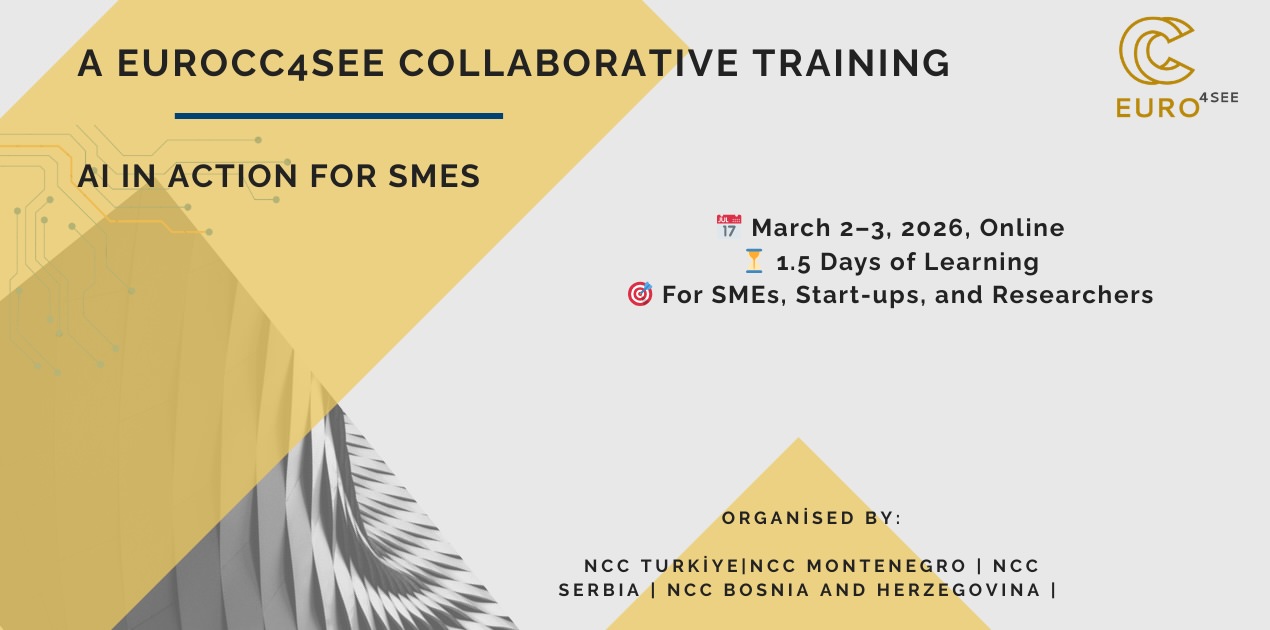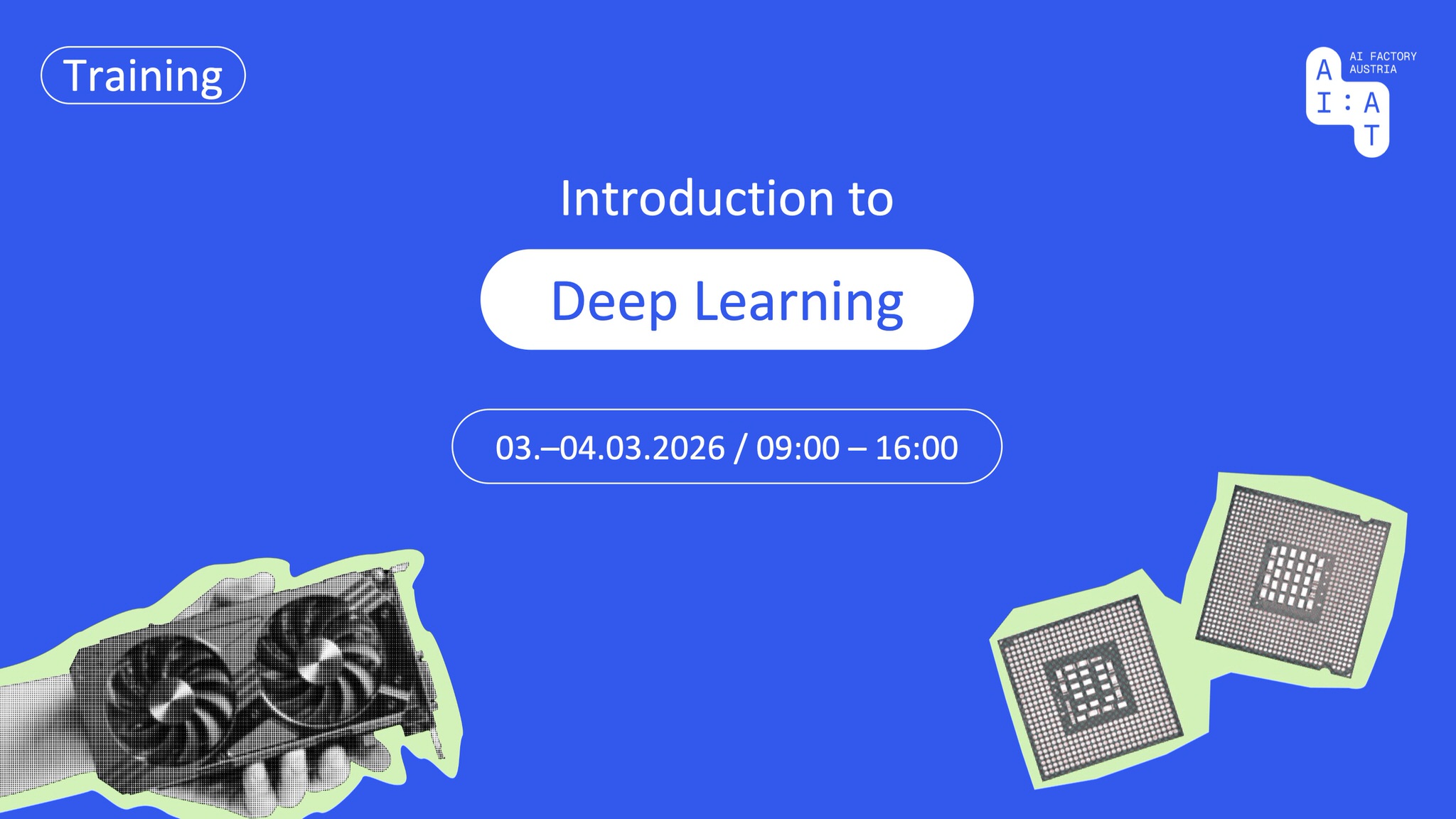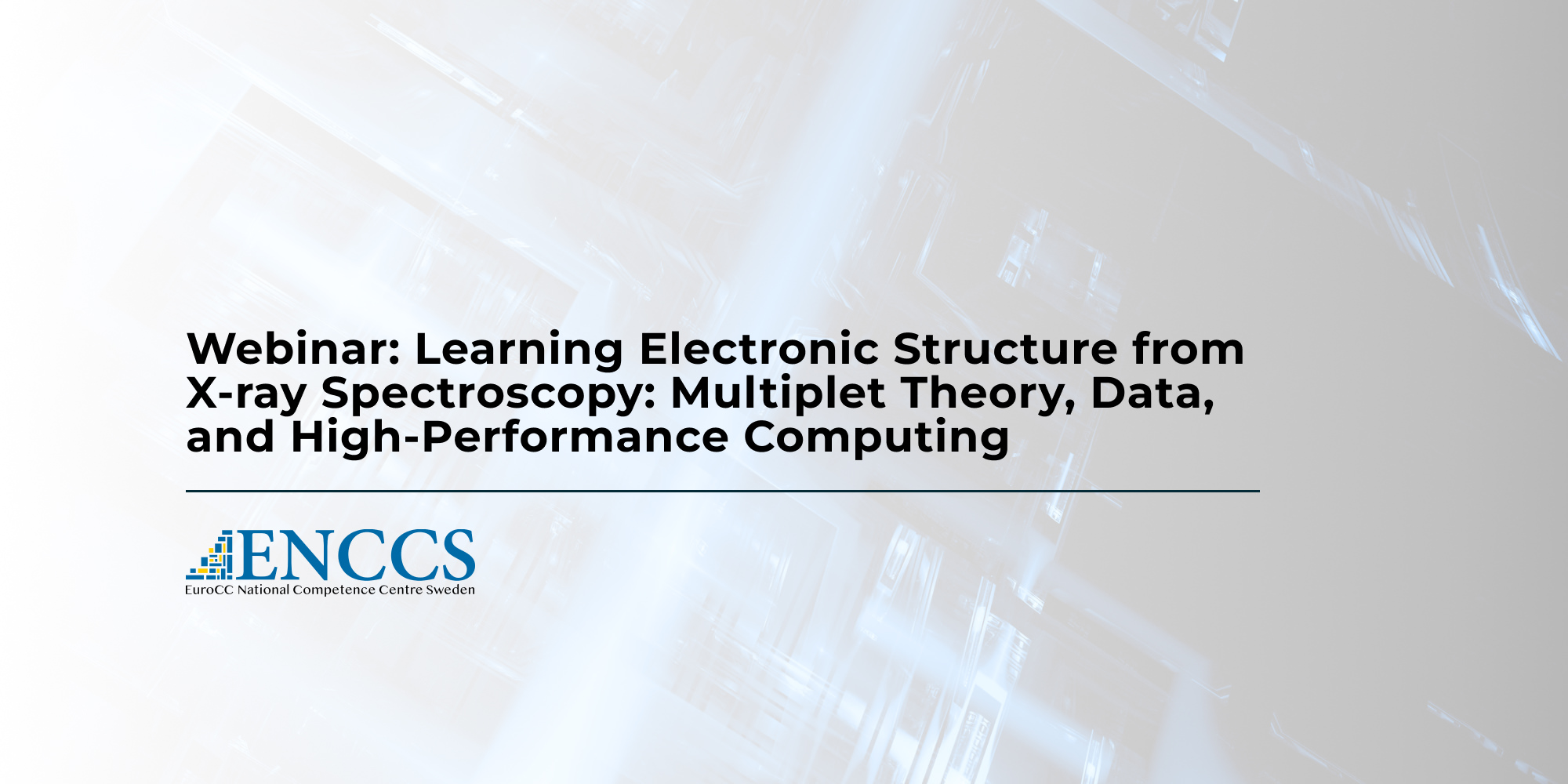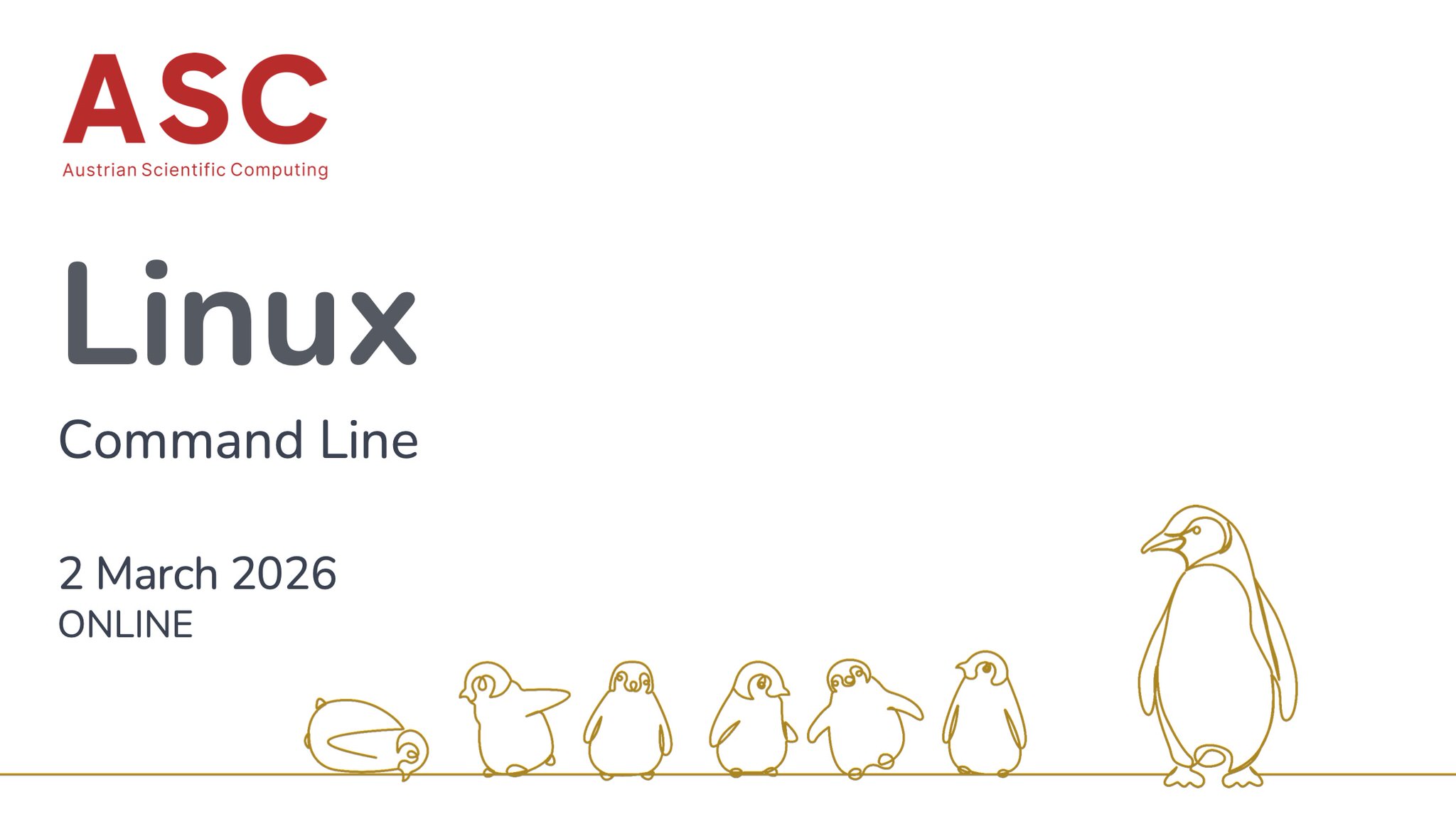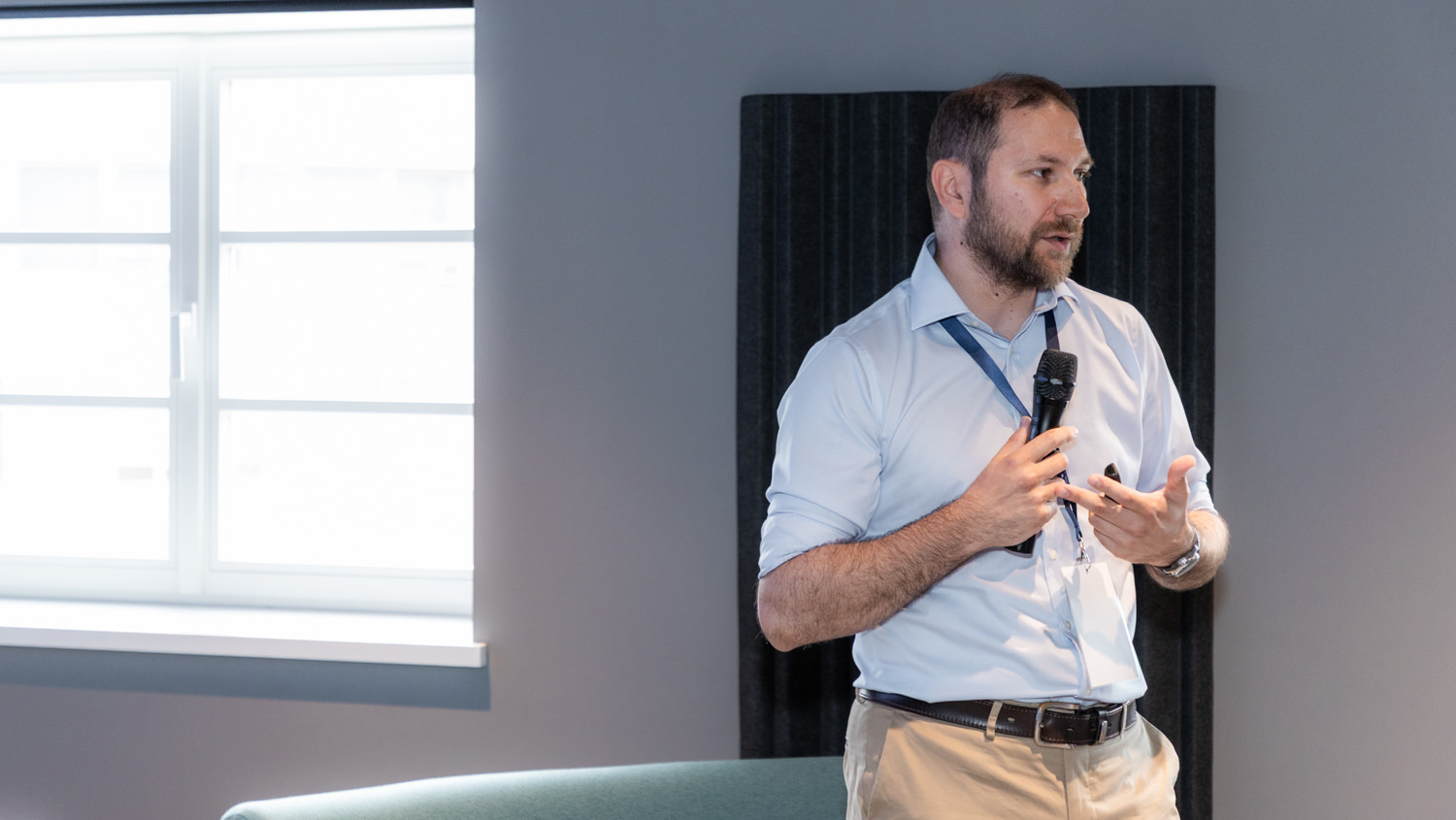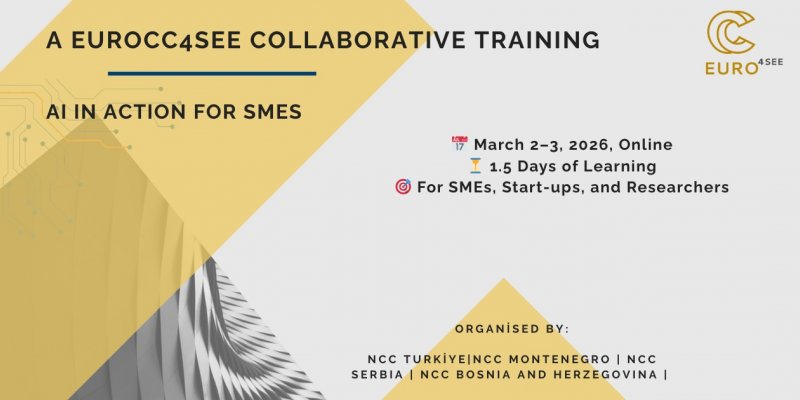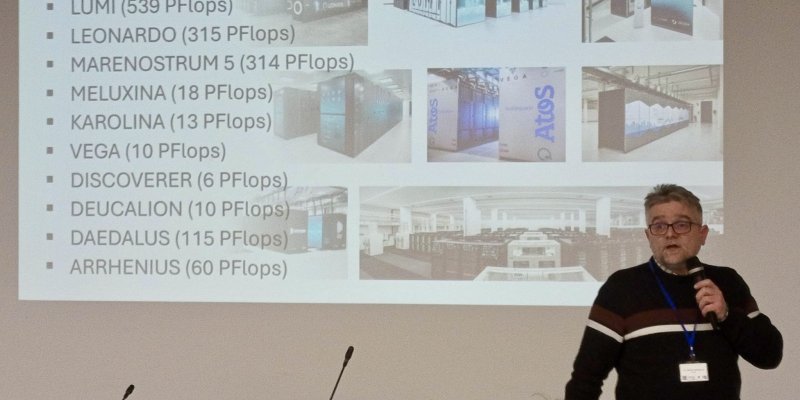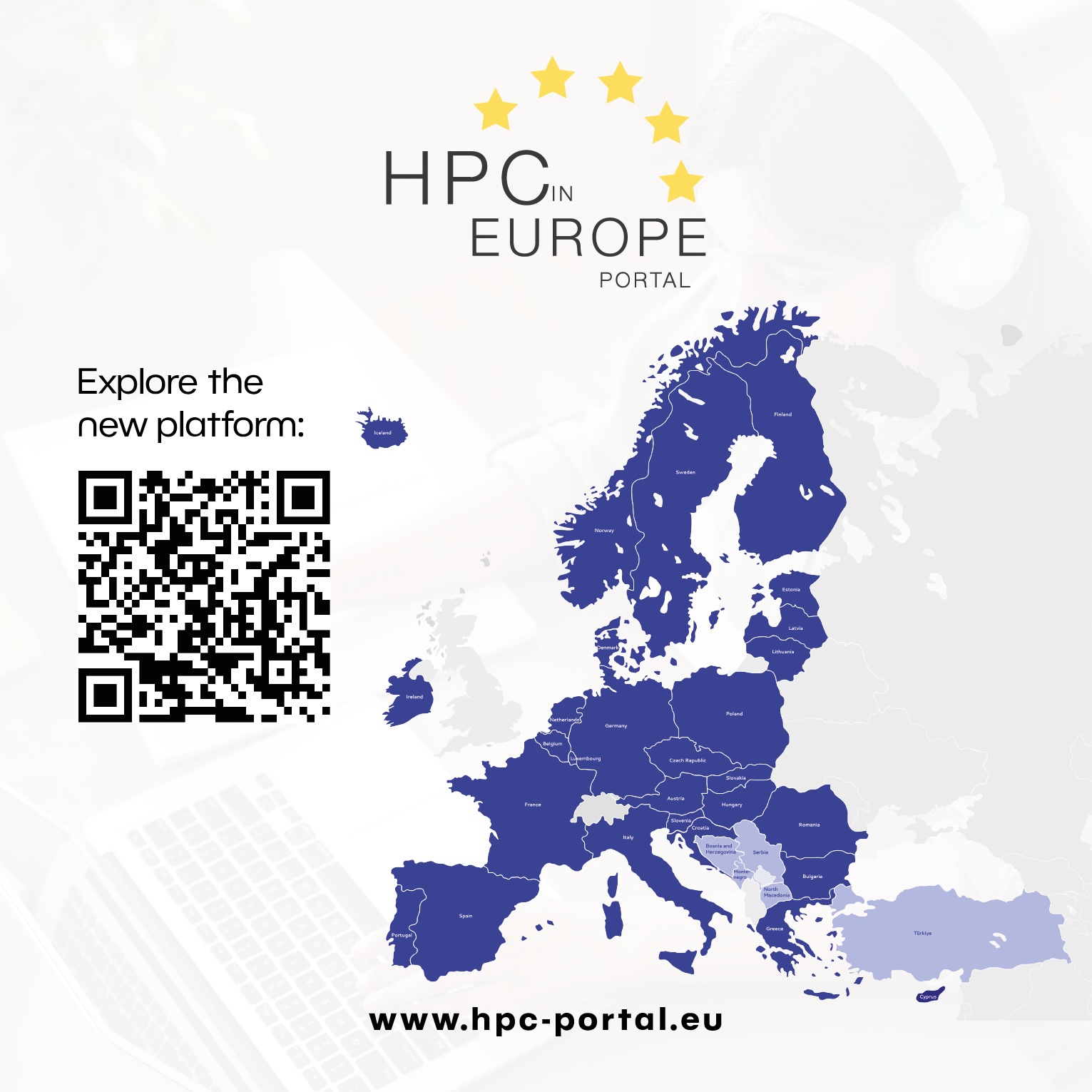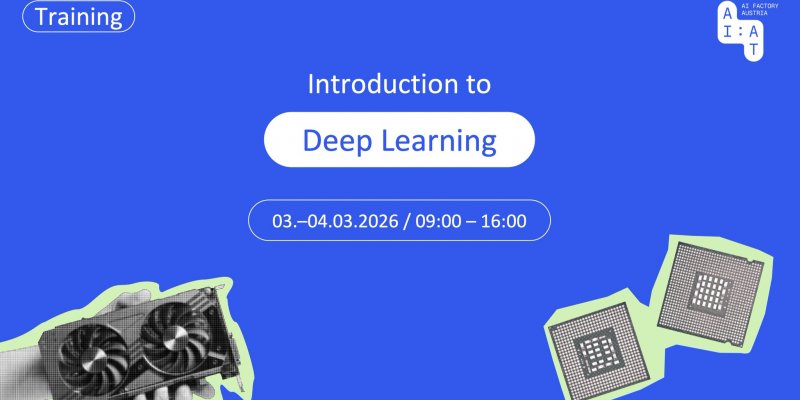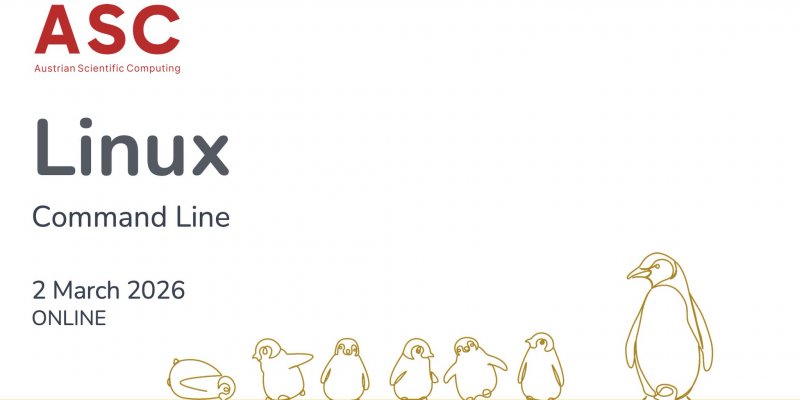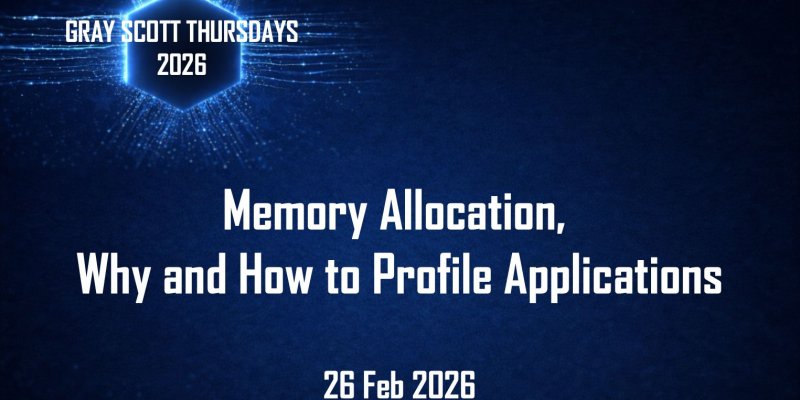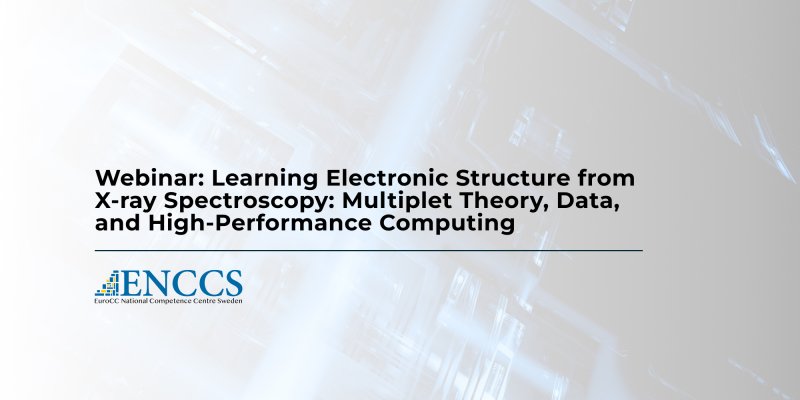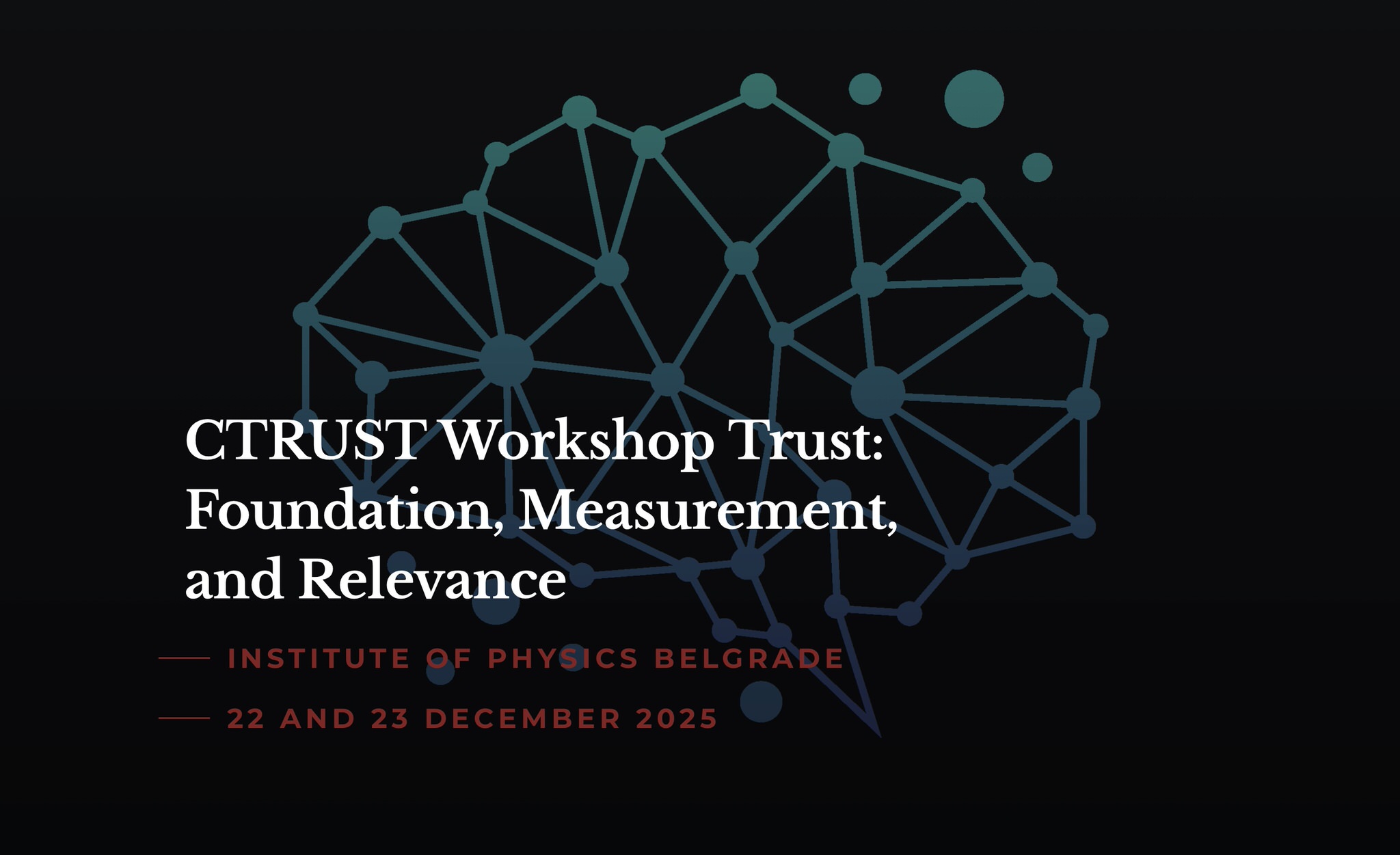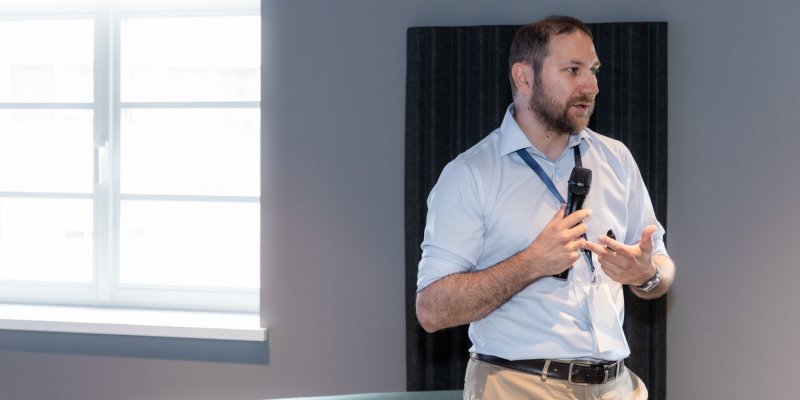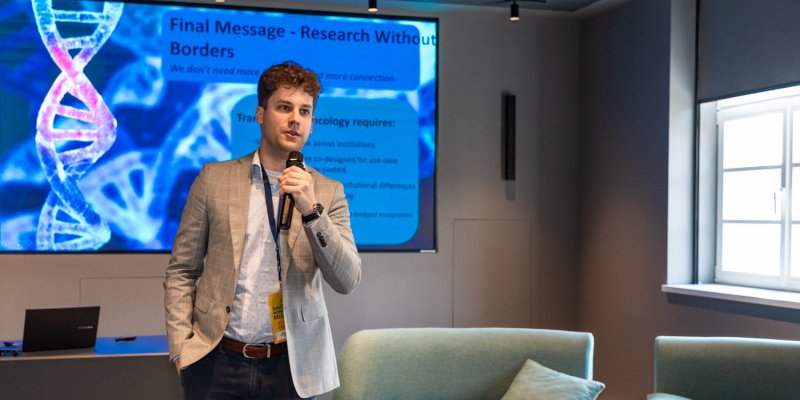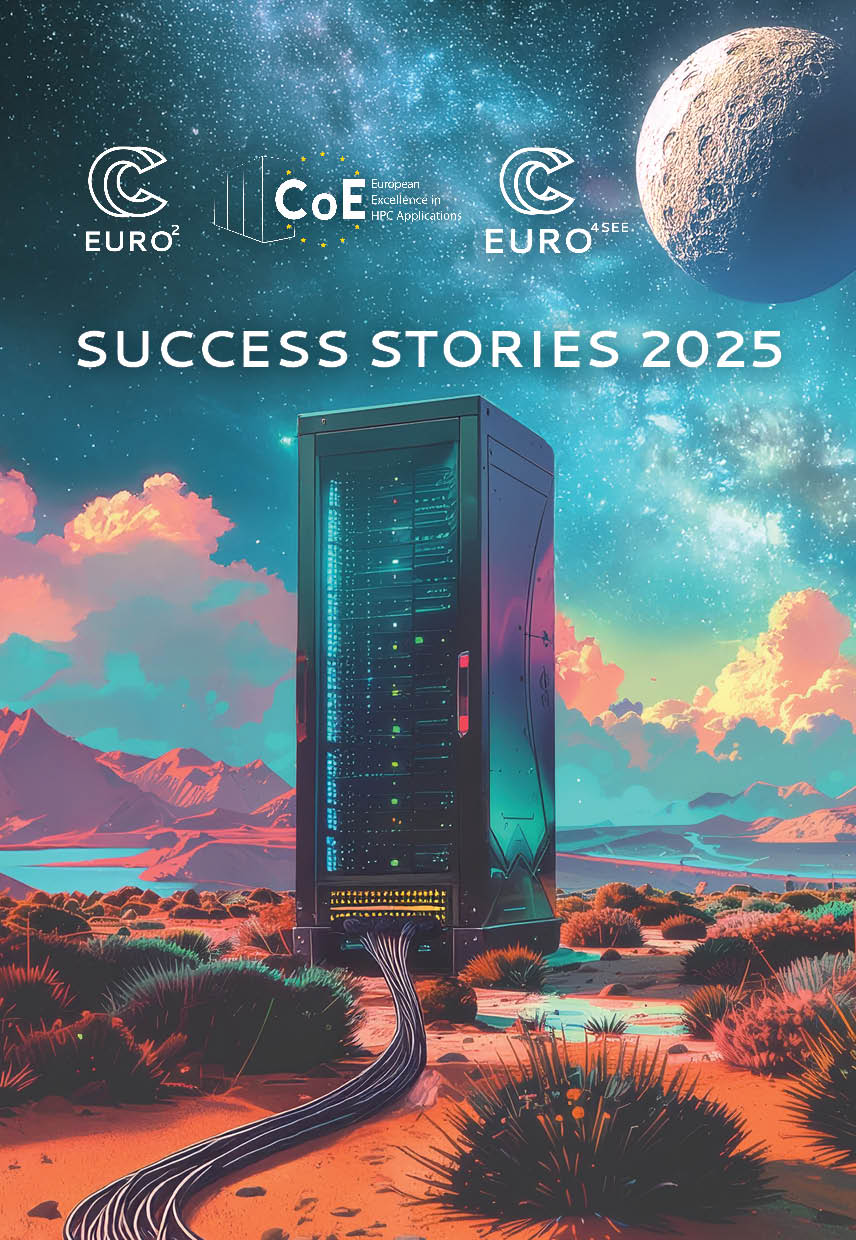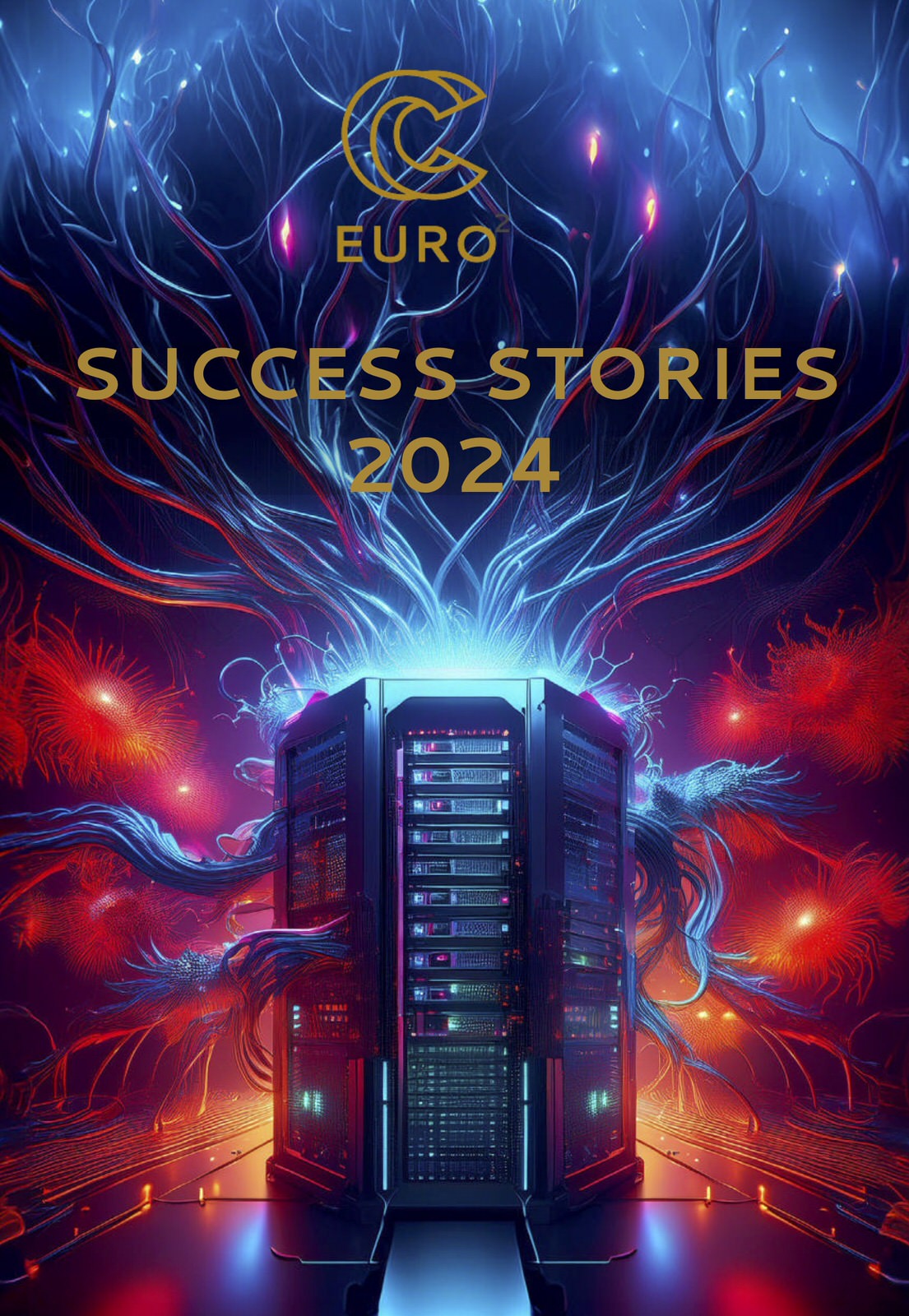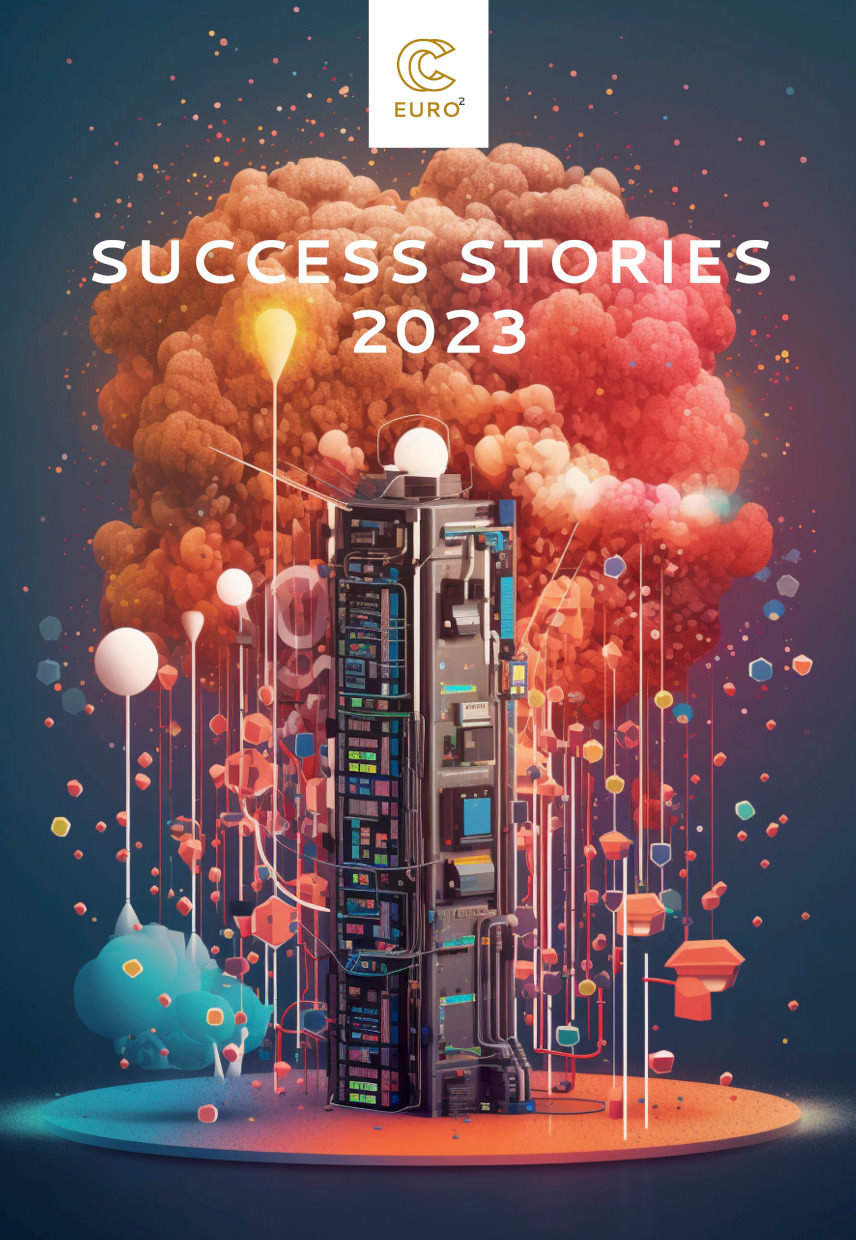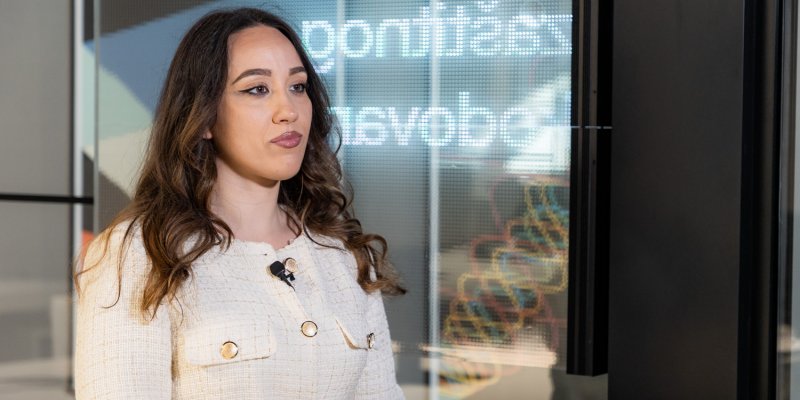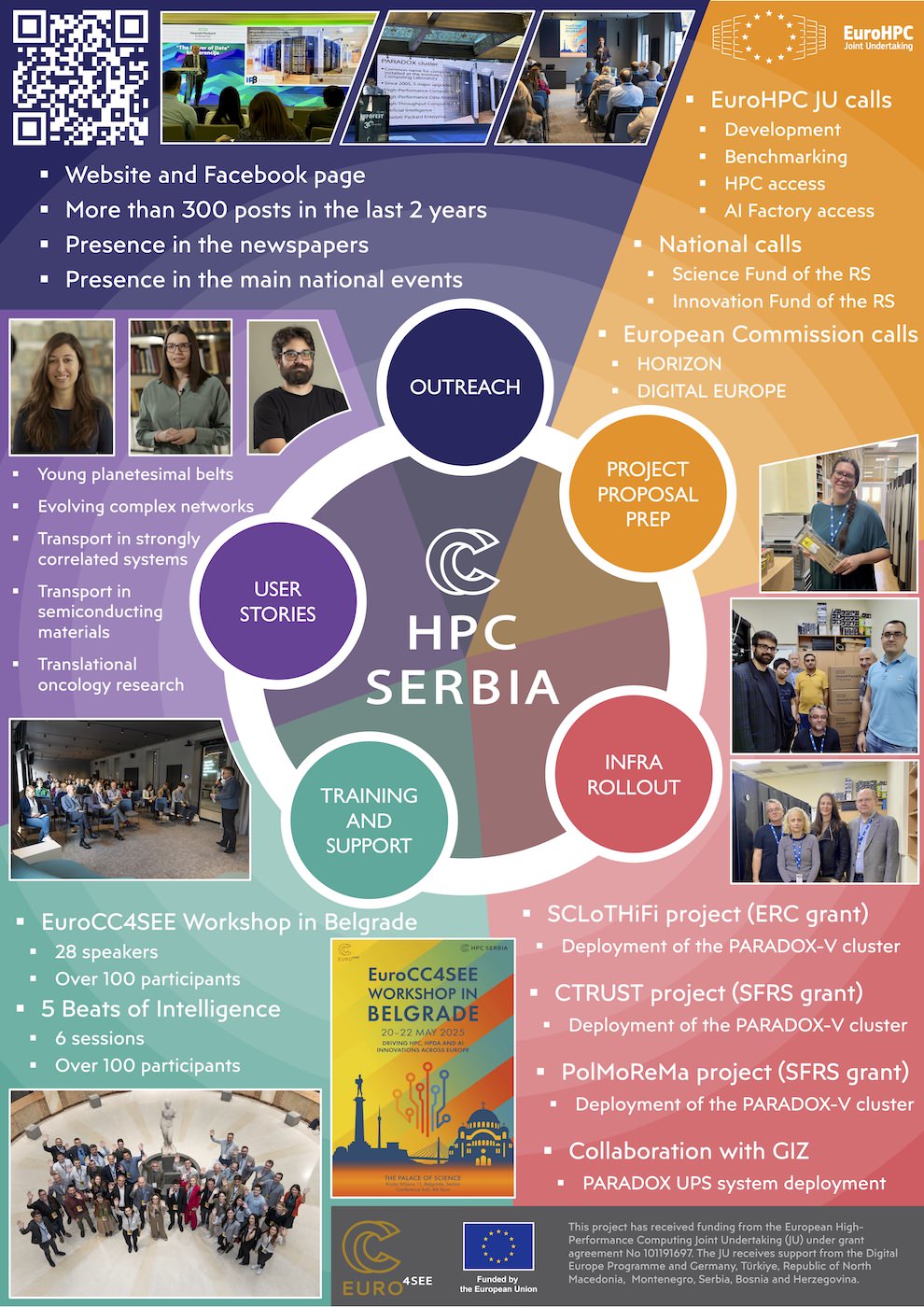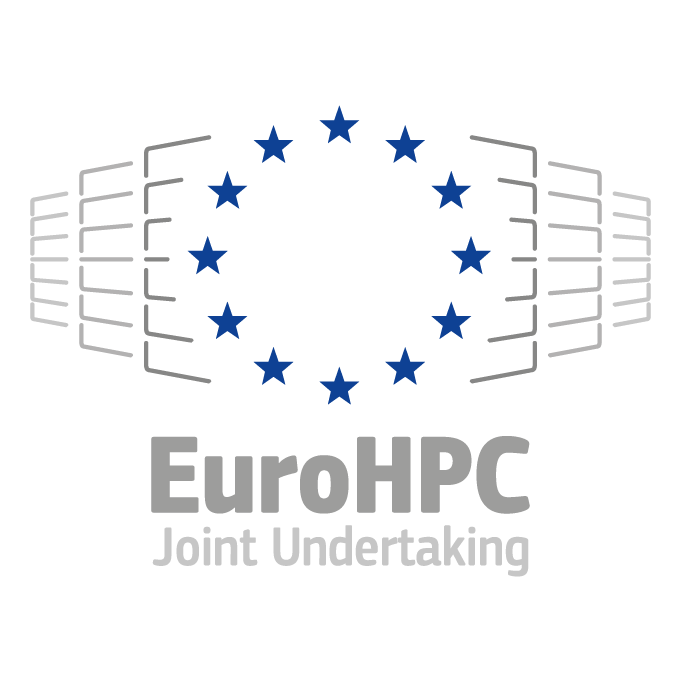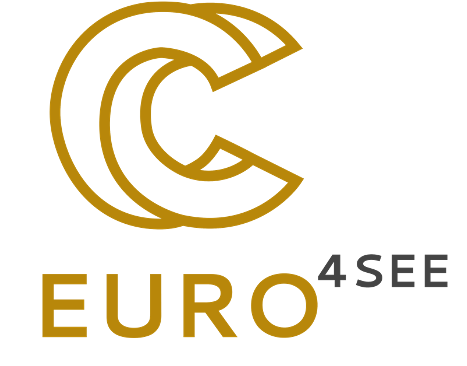In partnership with NCC Montenegro, NCC Bosnia and Herzegovina, and NCC Türkiye, we are pleased to announce a 1.5-day online training event, AI in Action for SMEs, taking place on 2–3 March 2026. It aims to help SMEs, start-ups, and researchers adopt practical AI solutions with regional expertise from the EuroCC4SEE initiative.
Please register in advance using this link: https://indico.truba.gov.tr/event/250/.
Introduction to Deep Learning
The online two-day course Introduction to Deep Learning will be organized by AI Factory Austria AI:AT and Austrian Scientific Computing (ASC) from 3 to 4 March 2026. This course covers the essentials of neural networks, from ANNs to CNNs for computer vision, RNNs for sequence processing and transfer learning. Participants will gain hands-on experience using PyTorch to build and train models on high-end GPUs on an HPC cluster.
Learning Electronic Structure from X-ray Spectroscopy
The webinar titled Learning electronic structure from X-ray spectroscopy: Multiplet theory, data, and high-performance computing, organized by the EuroCC National Competence Center Sweden (ENCCS), will be held on 3 March 2026.
Linux Command Line
The online course Linux Command Line will be organized by Austrian Scientific Computing (ASC) on 2 March 2026. ASC, formerly known as the Vienna Scientific Cluster, is a collaboration of several Austrian universities that provides supercomputer resources and technical support to its users. This course is targeted for new HPC users who might not have worked on the Linux command line before.
Opportunities of Collaborations Around HPC, HPDA, AI
The first webinar in the Opportunities of Collaborations Around HPC, HPDA, AI series will be organized by EXCELLERAT P2 CoE on 2 March 2026. The topic of the first webinar is Interaction with Industry. Claudio Domenico Arlandini and Simone Bna from CINECA will share their experience, key results, and practical insights gained through their interactions with the industry.
Using HPC and AI in Healthcare Solutions
The startup Moveo, founded by Vladimir Jeftović, is developing simultaneously in two directions: in the field of healthcare, as well as advanced AI analytics and optimization tools. In the medical field, the company based in Serbia, develops tools for the prevention of neurological complications caused by diabetes and for the improvement of the quality of life for people with diabetes.
In collaboration with NCC Montenegro, NCC Bosnia and Herzegovina, and NCC Türkiye, we are pleased to announce a 1.5-day online training event, AI in Action for SMEs, taking place on 2–3 March 2026. The training is designed to support SMEs, start-ups, and researchers in adopting practical Art...
The New Booklet Success Stories features inspiring examples of how National Competence Centers and Centers of Excellence across Europe are leveraging supercomputing to tackle complex challenges and drive innovation. Success stories span several focal areas of HPC use: atmospheric and environmental...
The DAEMON COST action general meeting held in Belgrade on 29-30 January 2026, and brought together members of the European research network focused on data-driven methods for functional materials engineering. The meeting served as a key coordination point for the action, enabling participants fro...
The new HPC in Europe Portal, launched this fall, serves as the gateway to Europe's supercomputing ecosystem. It consolidates EU-funded high-performance computing resources, services, and expertise into a single platform, enhancing accessibility and connectivity in supercomputing.
The Portal aims to enhance visibility, accessibility, and engagement within Europe's HPC community. It promotes information sharing and collaboration by bringing together Success Stories, Use Cases, Training courses, Events, Codes, Best Practices, Expert support and consultancy, and Specialized HPC software.
"This portal will make Europe's HPC knowledge, services, and training more accessible than ever", said Anders Jensen, Executive Director of the EuroHPC Joint Undertaking. "It will empower users of all levels to engage with Europe’s growing supercomputing ecosystem".
The online two-day course Introduction to Deep Learning will be organized by AI Factory Austria AI:AT and Austrian Scientific Computing (ASC) from 3 to 4 March 2026. This course covers the essentials of neural networks, from artificial neural networks (ANNs) to convolutional neural networks (C...
The online course Linux Command Line will be organized by Austrian Scientific Computing (ASC) on 2 March 2026. ASC, formerly known as the Vienna Scientific Cluster, is a collaboration of several Austrian universities that provides supercomputer resources and technical support to its users. This...
Gray Scott’s Thursday webinars continue, with this week's session focusing on memory allocation, application profiling, and their importance. Join this Thursday, 26 February 2026.
Memory issues have become a significant challenge in applications, not only due to bandwidth limitations but also b...
The webinar titled Learning electronic structure from X-ray spectroscopy: Multiplet theory, data, and high-performance computing, organized by the EuroCC National Competence Center Sweden (ENCCS), will be held on 3 March 2026.
Understanding how electrons behave in complex materials is key to t...
The first webinar in the Opportunities of Collaborations Around HPC, HPDA, AI series will be organized by EXCELLERAT P2 CoE on 2 March 2026.
The webinar aims to showcase concrete experiences, best practices, and lessons learned, for instance, in collaboration with industry, while fostering exc...
This week’s Gray Scott Thursdays webinar will focus on computing precision. Scheduled for 19 February 2026, it will explore how calculations behave when using primitive data types like floating-point numbers.
The computation is ideally fast when using simple objects known as primitive types, s...
The CTRUST Workshop Trust: Foundations, Measurement, and Relevance, held in December 2025 at the Institute of Physics Belgrade, brought together researchers from physics, computer science, social sciences, psychology, and artificial intelligence to discuss interdisciplinary approaches to the study of collective trust in online and social systems. The workshop was a two-day hybrid event organized by the CTRUST project, together with HPC Serbia.
The startup Moveo, founded by Vladimir Jeftović, is developing simultaneously in two directions: in the field of healthcare, as well as advanced AI analytics and optimization tools. In the medical field, the company based in Serbia, develops tools for the prevention of neurological complications c...
Dr. Luka Ilić, who previously worked at the Institute of Physics Belgrade, is now part of the Atmospheric Composition Group at the Barcelona Supercomputing Center (BSC), where he investigates the global movement and climate impact of desert dust using advanced high-performance computing (HPC)...
Stefan Milošević is a researcher from the University of Cambridge and BIO4 Campus, specializing in AI and HPC applications in oncology, with a particular focus on genetics, omics data, and clinical decision-support systems. AI is steadily transforming the landscape of oncology - not as a replaceme...
The Institute of Physics Belgrade (IPB) has established a long-term collaboration with Hewlett Packard Enterprise (HPE) in the design, deployment, and evolution of the PARADOX high-performance computing cluster, the national flagship supercomputing system supporting research and innovation in...
Germany offers a diverse array of high-performance computing (HPC) resources across various levels and purposes, backed by a well-established network of institutions — from individual research organizations and regional centers to federal facilities and European-level infrastructures. These resourc...
HPC Serbia plays a central role in fostering regional cooperation throughout Southeast Europe by linking national competence centers, research institutions, and industry partners within the wider EuroCC and EuroHPC frameworks. Initiatives like EuroCC4SEE allow HPC Serbia to enhance cross-border co...
Recently, HPC Serbia participated in the all-hands meeting of the CASTIEL 2, EuroCC 2, and EuroCC4SEE projects, held from 23 to 25 September 2025, in Tallinn, Estonia. The event gathered National Competence Centers (NCCs) and Centers of Excellence (CoEs) in HPC across Europe, where participants celebrated successes, discussed obstacles, and collaborated to shape the future of HPC in Europe.
The poster sessions stood out as a highlight of the event, providing NCCs and CoEs with the opportunity to showcase their latest activities and achievements, while demonstrating how HPC fuels innovation in fields such as engineering, climate science, and healthcare. Rather than being passive displays, these sessions promoted active engagement, allowing attendees to ask questions, share feedback, and explore new collaboration opportunities.
The meeting insights emphasized that advancing sustainability in HPC relies on creating innovative funding models and forming new partnerships. Moreover, training and outreach efforts should be inclusive and accessible to engage all sectors. Both formal and informal collaborations were recognized as essential for fostering innovation, with future cooperation offering chances to leverage past successes and tackle emerging challenges.
